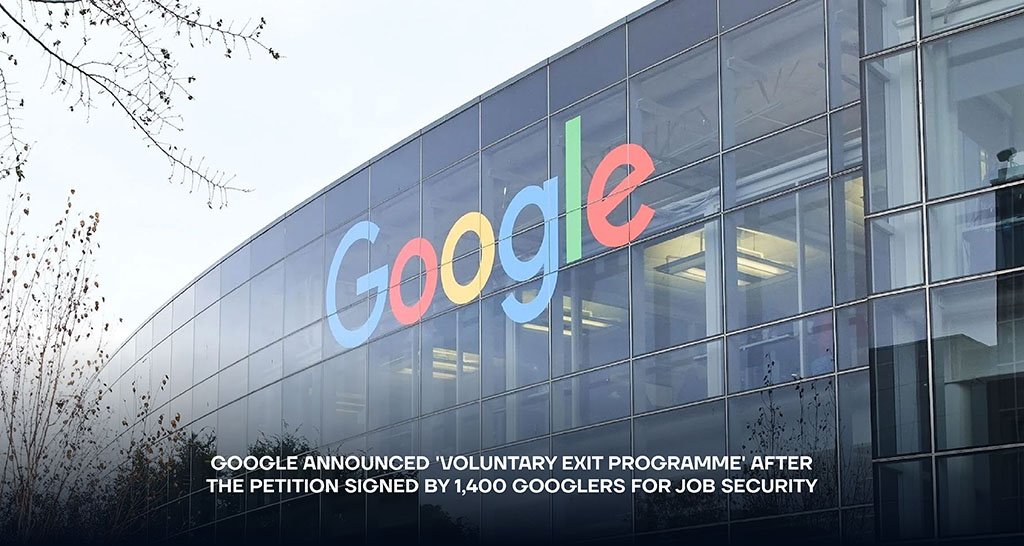The world’s giant company, Google, has announced a ‘voluntary exit programme’ for the employees in its Platforms and Devices group in the US. The platforms and devices team entails the workers involved in Android, Google Photos, Chrome, Pixel, Nest, and Pixel. A year ago, the company merged the Pixel hardware and Android software teams. Google focuses on streamlining its operations and better decision-making by merging these teams.
With this voluntary exit programme, Google is offering an option to employees to resign from the company. Under this programme, the company will not only provide severance packages if employees find the combined company’s vision no longer aligns with their goals and resign but also Google has tried to address the past complaints from employees who felt the company did not provide enough financial support during previous layoffs. But this will not be a company-wide programme; it will be in departments like AI and Search will have no effect from these offers.
As per the resources, the key purpose of this voluntary exit programme is to ensure that employees in the merged division are committed to the company’s goals. Google believes that team members who are actually passionate about their jobs can create great products quickly and efficiently.
The programme was announced amid a wave of restructuring across the tech industry and employees petitioned for job security. As Google is going through a tough period with ongoing layoffs and cost-cutting measures, anxiety about job security has become a major concern among employees.
According to reports, more than 1250 employees across the US and Canada signed an internal petition named “Job Security” and shared their concerns about their futures with the company. This increasing unease comes amid a series of incidents like disappointing product launches, employee protests, and continuous layoffs since 2023. The petition shows a broader sense of uncertainty in the company as employers are worried about further layoffs and major changes in the coming months.
More about the “Job Security” Petition
The petition mainly expresses concerns among the employees of Google about the increasing instability within the organization. It tells how this uncertain situation is affecting employees’ productivity and motivation levels. The petition highlights the constant fear of layoffs, which has created a climate of insecurity among employees. It also shows, despite Google’s strong financial position, the disheartening process of the existing layoffs and the departments of many valuable colleagues. The petition calls for attention to the emotional and professional harm the ongoing situation is doing to the employees.
With the new CFO at the helm, Anat Ashkenazi, cost-cutting has become a focal point for the company, mainly as Google is planning to make a significant investment in the AI infrastructure this year. As stated by Ashkenazi, there is still potential to cut the express, increasing concerns among the workers about the additional layoffs. When employees asked for clarification, the company did not provide any specific information.
For all these concerns, the petitions asked Google CEO Sundar Pichai to offer voluntary buyouts before moving for layoffs, ensure good packages for those who go, and not use performance reviews as a justification for layoffs. Some employees are concerned that low-performance ratings are taken strategically for layoffs. According to Google workers, Google’s performance review system, GRAD (Googler Reviews and Development), asks managers to accomplish a particular distribution of ratings over employees rather than looking at every employee individually. The petition asked the company to avoid using GRAD quotas. However, the company has denied these claims and said that performance evaluations are completely fair and aligned with employees’ roles and expectations.
Worldwide, massive layoffs are being done, especially by big tech companies. Last Wednesday, the biggest e-commerce platform, Amazon, made the announcement about layoffs in its communications and corporate responsibility divisions. In August last year, Intel announced layoffs that affected around 15,000 people; in October, Dropbox asked over 500 employees to go. This January, Meta announced laying off 3000 employees.












